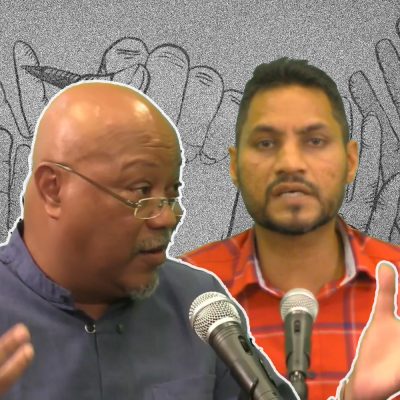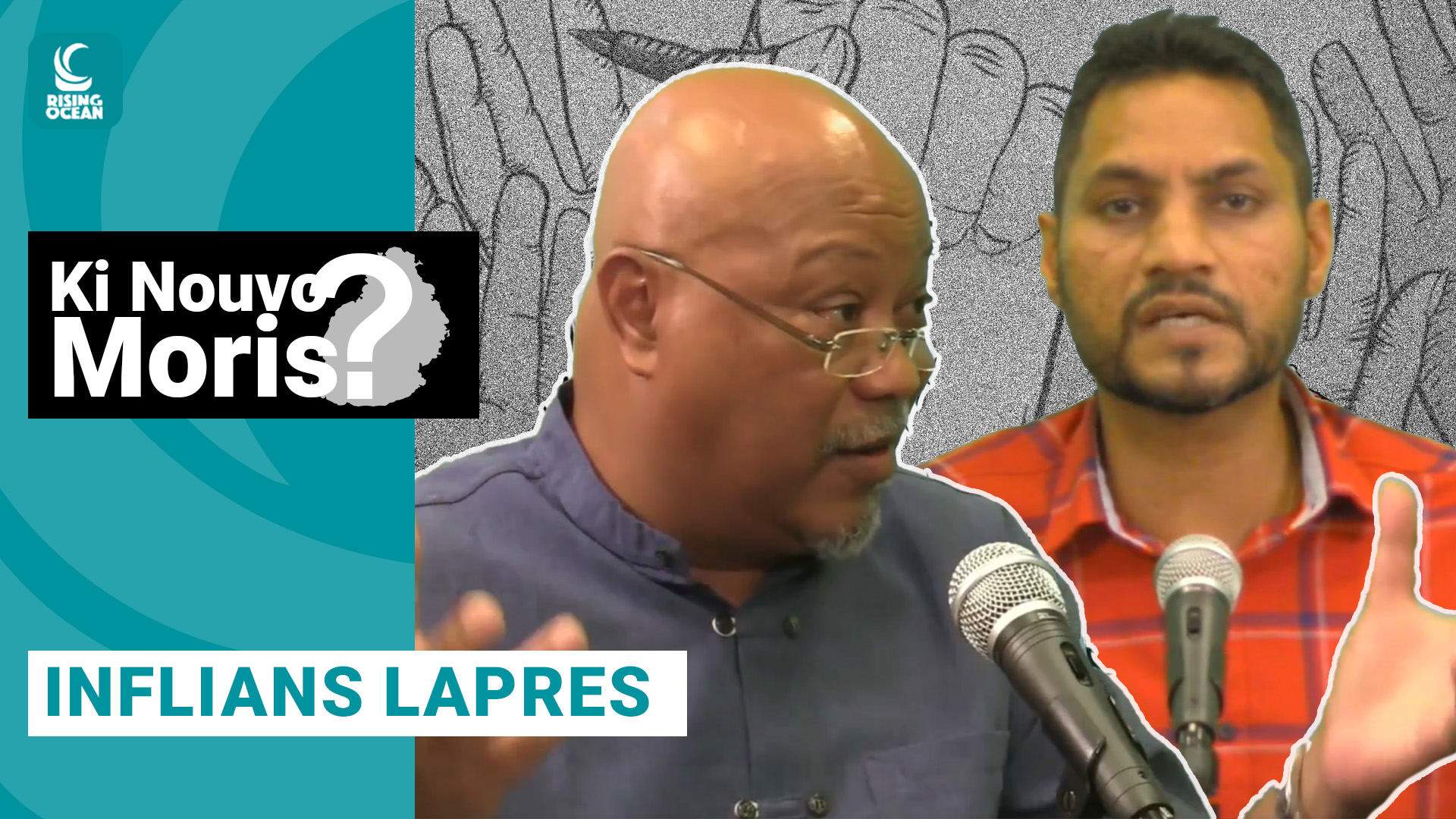The world of the press has been the target of several attacks for some time. Some well-known investigative journalists have been unjustly dismissed, while others have resigned under threat. For all these reasons, the Ki New Moris set invited Joël Toussaint, the president of Journalist Association of Mauritius (JAM). The topics that will be addressed are why the creation of an association for journalists and what are the challenges of the media. The debate was hosted by Ashvin Gudday.
Joël Toussaint began the debate by clearly explaining that the press and journalists are not friends of politicians and that this must be clear to the population. By insinuating that journalists are the comrades of those in power, it creates doubt in the public mind because they believe that there is some form of connivance and that the press is not entirely free.
Indeed, the press has an influence in society because it educates, shares information on the development of the political sphere, the press also denounces the abuses of power and scandals in which the regimes in power are involved, and by insinuating that there is a form of comradeship and complacency between the members of the press and those who govern the country, risks undermining the credibility of the media.
What is the opinion of the local press?
The Mauritian press can be proud as it is the second oldest press in the world, says Joël Toussaint. This is due to the freedom of expression that Mauritius obtained during the English period and it has always made progress since its creation.
The mission of the press is divided into three categories: informing, educating and entertaining. Nevertheless, today, the press is no longer what it used to be. Some journalists only repeat what they have been told without really verifying that the information received is true.
To be a good journalist, it is not enough to pass on the information received without verifying its source or whether it is true or not, says Joël Toussaint.
“Wanting to make a splash at all costs and being the first to add up to the minute information without analyzing it is to the detriment of the profession.”
Certainly, this way of practicing journalism is simply the dissemination of information, and it is not even reportage. There is a difference between the press and the media, highlights the editor-in-chief of Indocile. In the press, journalists have a way of proceeding that is different from those who operate in media companies. There is a structure to follow and three missions to accomplish. However, these days, it’s more about infotainment.
“It is entertainment that is favored by media companies. Journalists are not there to be a distraction, our job is a broader environment, it has a social function.”
Does the JAM have the necessary frameworks to ensure the protection of journalists?
“At the level of the association, we are already meeting in self-regulatory formulas where in the run-up to the elections, we are going to ask the different political parties to recognize journalism as a profession at the legal level, like all other professions.”
In order for the JAM to protect journalists, there must be a legal framework. It’s true that sponsors will be needed to protect themselves financially, and Joël Toussaint assures that the sponsors they are looking for will not be those who give and expect something in return. Undeniably society needs journalists and that an organization needs funds to function, but it’s not a question of what cost, says our interlocutor. It is by ensuring the independence of the JAM that journalists will be truly protected.
“This independence is necessary. The goal of JAM is above all to keep a midway, a distance between political and economic powers. The role of the press is to ensure that both are accountable to the population.”
JAM has four different hubs, and one will only be in charge of unionizing. Indeed, JAM will be in charge of doing a kind of collective bargaining for its members and for those who will only join the unions of the association. It will be important for all those who do not meet the criteria to join the JAM to have union protection because every employee of the media company and the print press has the right to be represented, underlines Joel Toussaint.
It is obvious that the press shape’s public opinion and contributes to the education of the nation. This is why it is essential to ensure its independence and autonomy and this regardless of the sponsors and funding that the company has. As a matter of fact, journalists are unfortunately forced by their editors not to write on certain subjects because the media company is partisan of a political party. This goes directly against the journalistic profession because the press has an obligation to the population to report the misdeeds of those in power and thus act as a political watch dog that will expose all the abuses they commit.
Watch the debate here:


